|
|
| INTRODUCTION |
Research Background
Nowadays, energy and environmental issues such as global warming and the
depletion of fossil fuels are piling up. Because of that, the need to seek
technical solutions is vital. This has prompted the development of environmentally
friendly and highly efficient energy conversion technology.
Energy conversion relationship :
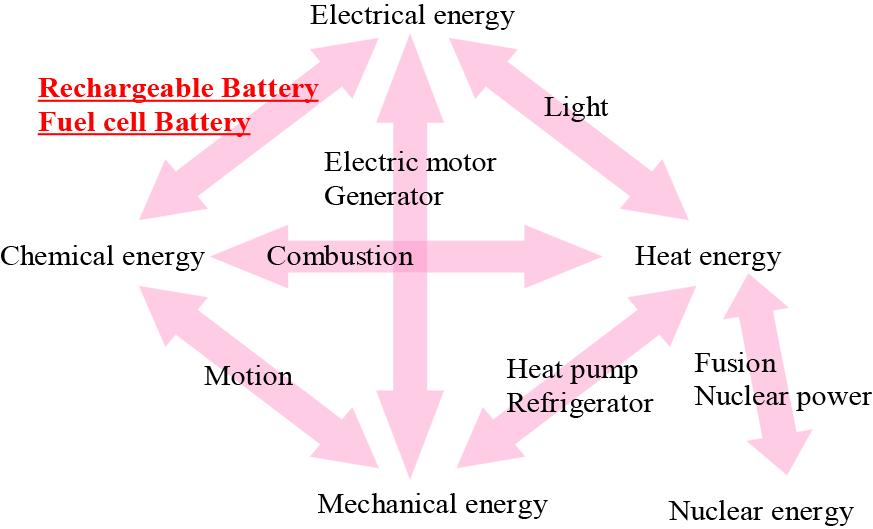
Fuel cells and rechargeable batteries can convert chemical energy of fuel
to electrical energy directly. Thus, environmentally friendly and highly
efficient energy conversion become possible.
In this laboratory, fuel cells such as solid oxide fuel cell (SOFC) and
rechargeable battery such as lithium-ion rechargeable battery have been
our primary subjects for research.
EResearch on Degradation of Lithium-ion Rechargeable Battery
In lithium-ion rechargeable battery deterioration tests, 18650 types of
common cylindrical shape batteries and laminated batteries are tested under
various conditions. Then, the degree of deterioration for each battery
are determined by the change of impedance, before and after the test, which
are measured using frequency response analysis equipment (Solartron 1280C).
In addition, the changes of the degree of deterioration of the battery
are analysed by changing the charge and discharge pattern of the battery.
EResearch on Simulation of Solid Oxide Fuel Cell (SOFC)
In this laboratory, two programs are created to simulate the power generation
characteristics of SOFC in basic cylindrical, disk and plate shapes, and
to calculate the amount of power generated and the amount of hot water
produced by the SOFC power supply distribution system. Both programs are
created using Visual Studio.@Then, using numerical simulation under various
operating conditions, the state of the SOFC single cell power generation
and the characteristics of its operating system are examined.
EResearch on energetic measurement and effective energy use
In this laboratory, the measurements of electric and thermal demand comsumed
in the cafeteria located in Hitachi campus, Ibaraki University, have been
carried out since 2012, By recieving financial support of Grant-in-Aid
for Young Scientists (B) of No. 24760224 provided from The Ministry of
Education, Culture, Sports, Science and Technology in Japan. Concerning
the electric demands, the monitor system (HIOKI 2300) is installed on the
200V distribution board in the cafeteria. Hence, The electricity comsumed
in 200V system is obtained as the electric demands. On the other hand,
with respect ot the thermal demands, the consumption of city gas fed into
the hot water dispenser is monitered by the thermal mass flow meter (OVAL)
with the high accuracy. By using those measured informations, our researching
party is proposing some suitable systems, in which the electric and thermal
energy can be effectively utilized.
If you are interested, please feel free to visit to our laboratory.
Laboratory Scenes
Some of the laboratory equipments.
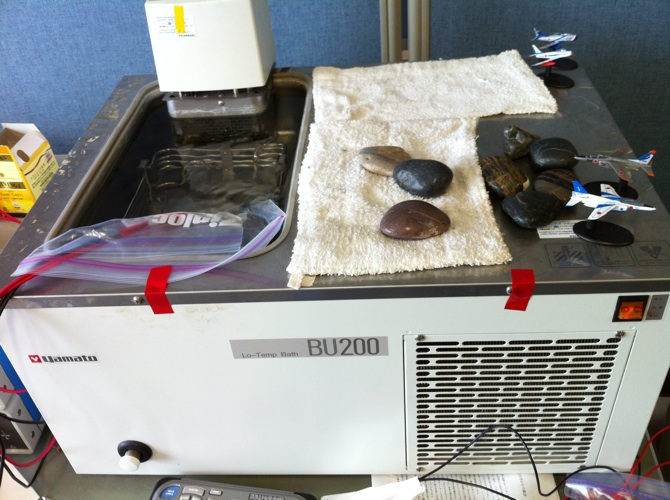
Professor's favourite electric bicycles.

Distribution board assembled the monitor system
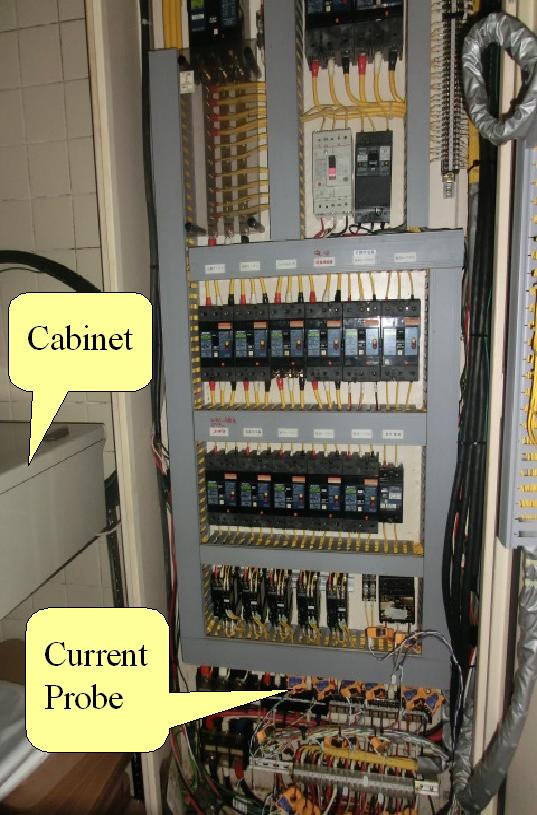
The monitor system in the cabinet
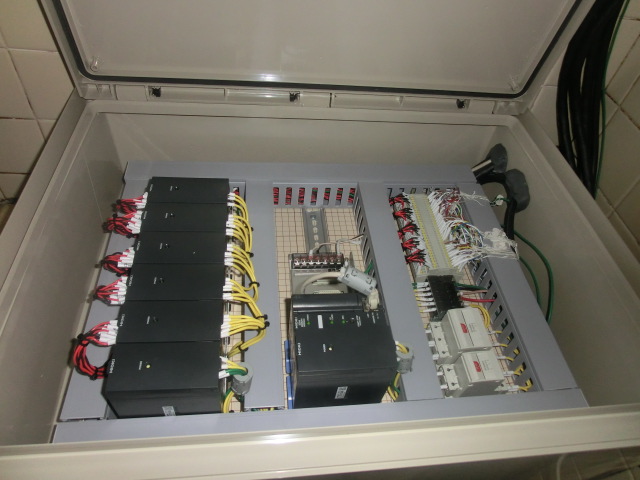
Thermal mass flow meter for measurement of thermal demand
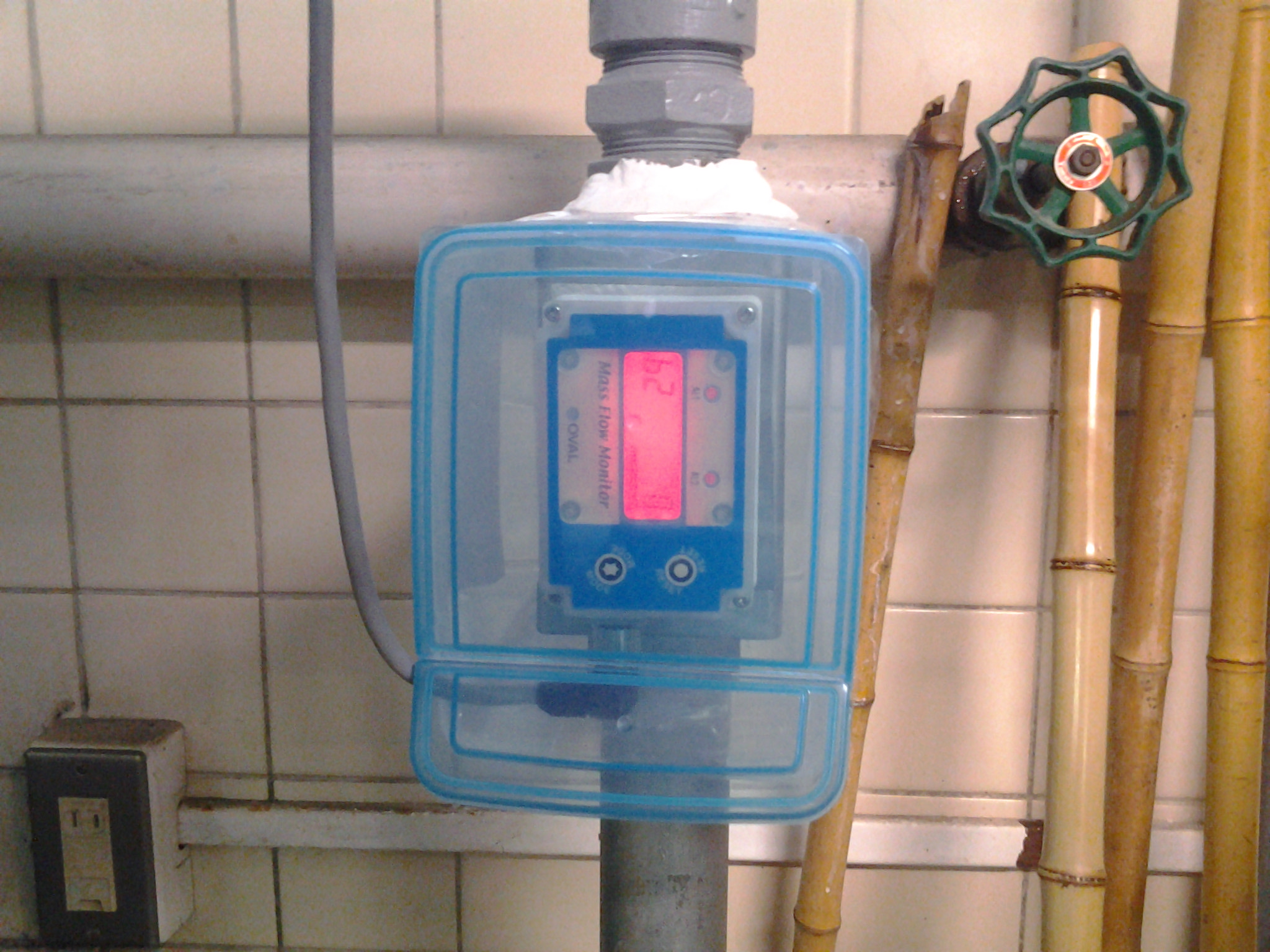
DC power supply system for thermal mass flow meter
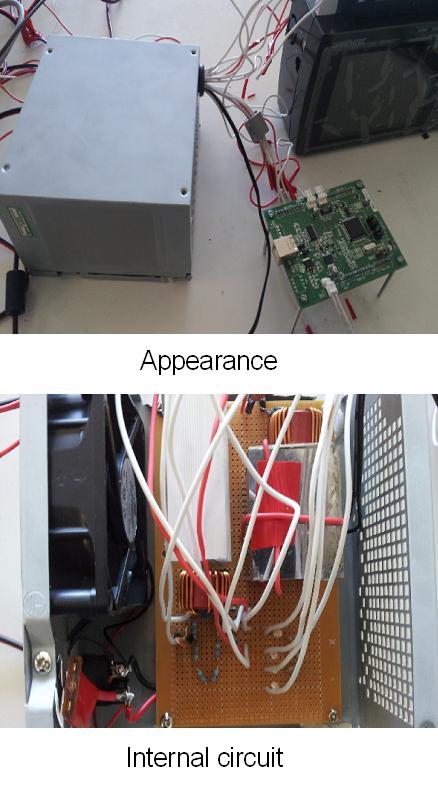
Student's desk..
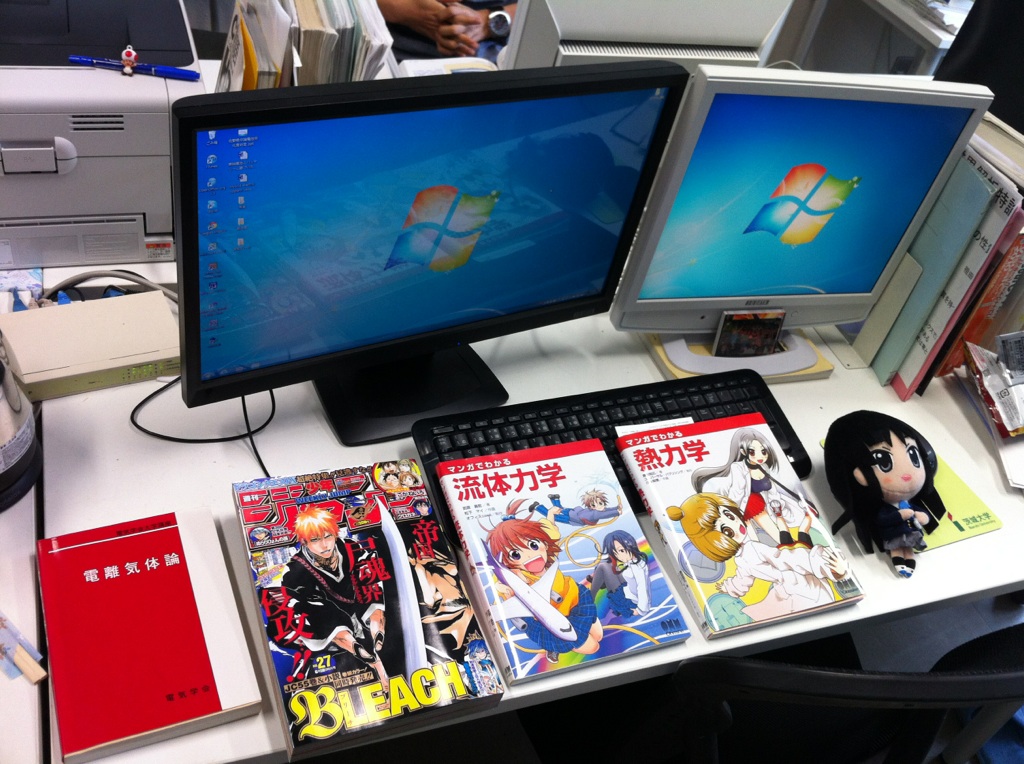
Lab. leader Tanaka.
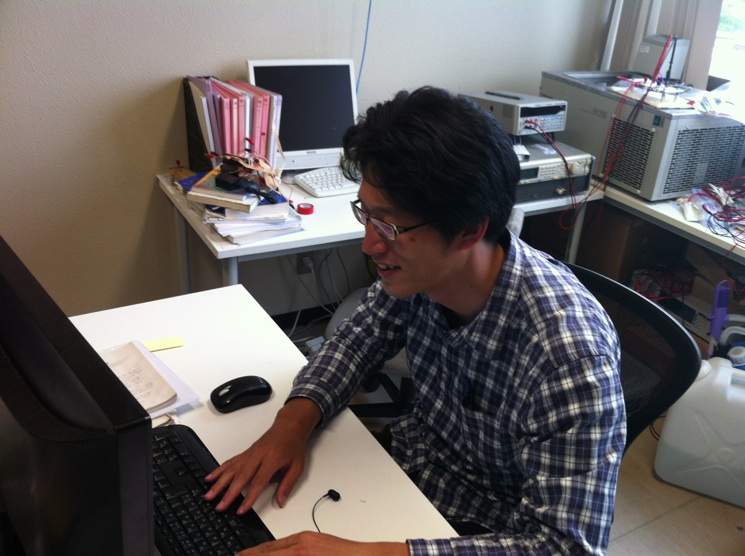
Leader's favourite couch.

You can see the rainbow in the lab. as shown in following photos.
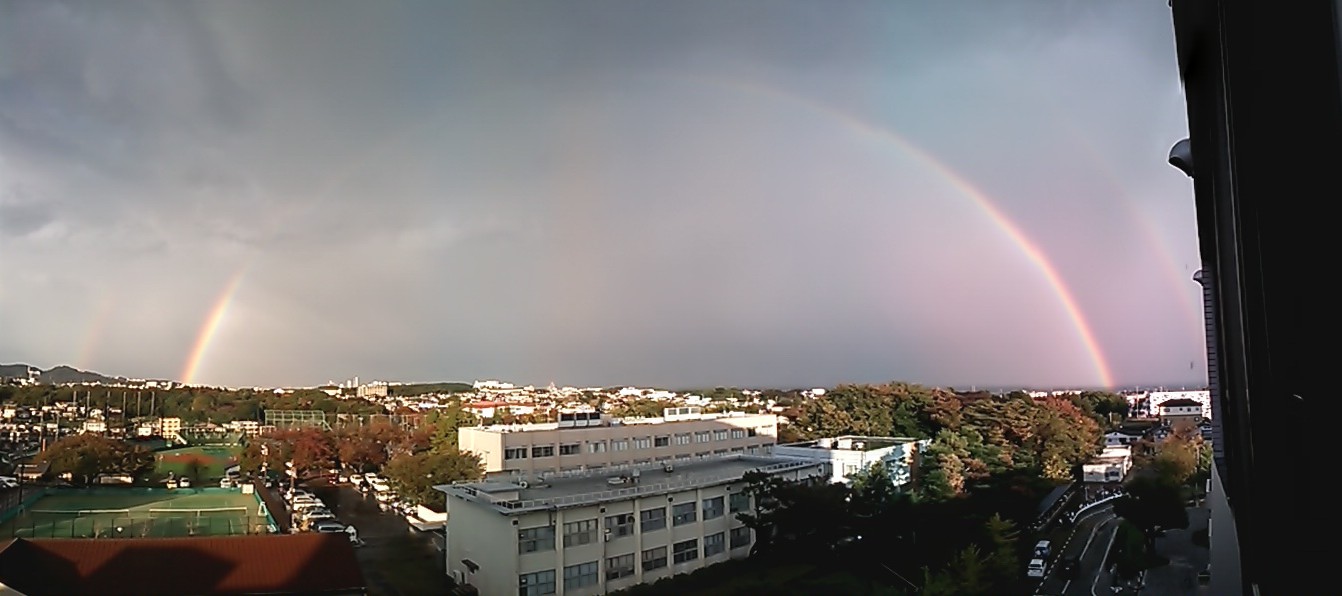

(2012.11.07)
Textbooks of Study Session in the laboratory
| 1jCΜΝwF[v}&V
R @gͺX |
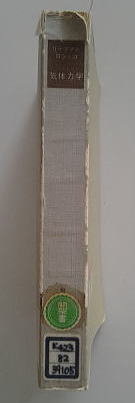 |
This book is written by Dr. H.W. Liepmann and Dr. A. Roshko. The main theme
is fluid flow.
In the study session,
all participants read Chapter 1 that is CONCEPT FROM THERMODYNAMIC in the
book and give some explanations. |
| 2jdC»wFnΣ³CΰΊΉuCvcGχCnΣ³`@ΫP |
 |
The main theme is electrochemistry.
All participants read Chapter 1 to 5 and chapter 10 in the book and give
some explanations.
There are theory of electrochemistriy, battery, rechargeble battery and
fuel cell. |
| 3jElectric Energy Systems Theory written by Prof. OLLE I. ELGERD |
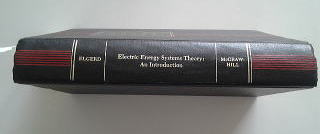 |
This book is prepared for senior undergraduate and first-year graduate students. This book includes the broadly based electric energy engineering.
The vintage book is published in 1971.
|
|
|

